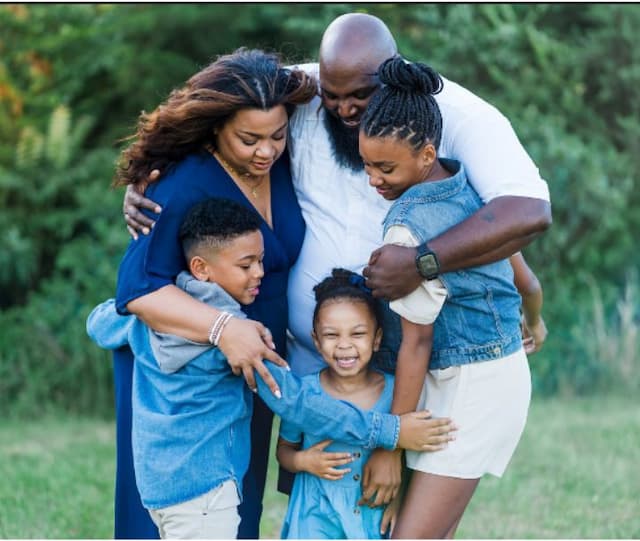When Grief Comes for the Holidays

Everyone has a favorite holiday. According to a Harris poll, some folks favor their birthday, Labor Day, or Valentine’s Day. Surprisingly, more people call Halloween their favorite holiday (9%) than Easter (3%). What is not surprising is where Thanksgiving and Christmas fell on the survey.
- Christmas is the favorite holiday for 46% of us.
- Thanksgiving is the favorite holiday for 19% of us.
What makes these our favorites goes far beyond Black Friday or nonstop Hallmark movies. For many Americans, these two days offer more time off, but chiefly we love these days because of two things:
- Holiday traditions
- Family
 Of course, family and holiday traditions go hand in hand. You rarely have one without the other. There’s a comforting “sameness” we experience each year as we all get together and do the same things we did the year before … and the year before that. Every family has those traditions we love to come home to.
Of course, family and holiday traditions go hand in hand. You rarely have one without the other. There’s a comforting “sameness” we experience each year as we all get together and do the same things we did the year before … and the year before that. Every family has those traditions we love to come home to.
The very traditions we love so much can also bring us the greatest grief.
- You look forward to coming home to the smells of your mother’s turkey, dressing, and Christmas cookies. But then she died. Now the tradition of coming home is marred. The absence of those traditional smells keeps reminding you that she’s gone.
- The absence of a husband’s over-the-top Christmas lights and yard decorations screams that he’s gone every time you pull into the driveway.
Because of death and grief, once overly joyous holidays become unbelievably hard. I’ve discovered some who once treasured Christmas but now dread it. So how do we grieve without letting that grief overwhelm us or devastate those special moments like Thanksgiving and Christmas?
I am not about to talk you out of your grief. Grief is real, and it is not a sin to grieve. You don’t have to read far into the Book of Psalms to discover David and the other psalmists experienced grief.
 Grief hits us in different ways. You may be familiar with the stages of grief, but we all progress through those stages in different ways. Case in point: I talked with a few friends about how they handled Christmas after the death of a parent or spouse. Here’s what they told me:
Grief hits us in different ways. You may be familiar with the stages of grief, but we all progress through those stages in different ways. Case in point: I talked with a few friends about how they handled Christmas after the death of a parent or spouse. Here’s what they told me:
- My husband died in January, so I had 11-1/2 months until Christmas rolled around again. That spacing of time was a gift, but it was still the “first Christmas” without him at the end of a long year of “firsts” (birthdays, holidays, vacations) without him. What helped me was that I held on to some of the old family traditions, but my girls and I added some new traditions too. The blend of old (familiar) + new worked well for us.
- My mom passed away in September, and our Christmas tradition had always been to gather at her house. That first Christmas my oldest brother and his family invited our whole family to spend four days at his house the week of Christmas. It was a really special time and helped so much to have a very different Christmas holiday.
- When my dad died, it was unexpected. We celebrated Christmas but did not follow all the same routines. We did not put up the large tree; instead, we had a tabletop tree. I could tell at times our laughter and enjoyment was a little overdone just to get through the memories. All in all, it was a good Christmas. My mom’s death was expected. Our Christmas was normal since my daughter was three and starting to understand Christmas.
- My mother became very debilitated, and we moved her to a nursing home close by so I could attend to her daily. Even though I did everything I could, she had a difficult end. I experienced unexpected regret after she died. When people told me, “But you were so attentive and cared for her so well,” it did not help. Time helped. I just had to walk through that pain and experience my grief in that way.
- The firsts are always difficult. I found it helpful to keep our routines and holiday traditions the same. I also tried to bring in something new to start a new tradition. I also acknowledged that we were greatly missing my husband and my sons’ father. We kept the focus on good memories. It helped to laugh instead of cry.
 As you can see, there’s a not a singular way to “get through” the holidays, but there is one common element in each of these stories. It’s the plural pronoun “we.” Grief can be very personal, but don’t face it alone. Surround yourself with family. Surround yourself with your Bible study group or close friends. The Book of Hebrews was written to Christians facing hardship and even persecution, but the command given to them to face those hard times applies equally well to the hard times of grief.
As you can see, there’s a not a singular way to “get through” the holidays, but there is one common element in each of these stories. It’s the plural pronoun “we.” Grief can be very personal, but don’t face it alone. Surround yourself with family. Surround yourself with your Bible study group or close friends. The Book of Hebrews was written to Christians facing hardship and even persecution, but the command given to them to face those hard times applies equally well to the hard times of grief.
Surround yourselves with believers and encourage one another. (See Hebrews 10:24-25.)
Of course, God walks with us through the dark valley of grief …
“For you, Lord, rescued me from death, my eyes from tears, my feet from stumbling. I will walk before the Lord in the land of the living” (Ps. 116:8-9).
… and He walks with us also through the presence of others who are His followers, those in whom He lives through His Holy Spirit. May the presence and comfort of God soften any grief the holidays may bring. May you also experience the joy of what Christmas means: God is with us!
What has helped you deal with grief during a holiday? Share that with us in the comments below.
Subscribe to this blog at the top of the page! And encourage others by sharing this post.
For a printable version: click here.
 This post supports the study “Walking in Grief” in Bible Studies for Life and YOU.
This post supports the study “Walking in Grief” in Bible Studies for Life and YOU.
Podcast
Join Lynn Pryor and Chris Johnson as they discus this topic:
http://ministrysites.s3.amazonaws.com/podcasts/bsfl_adults/BSFL_ADULTS_WIN21_U1S1.mp3




